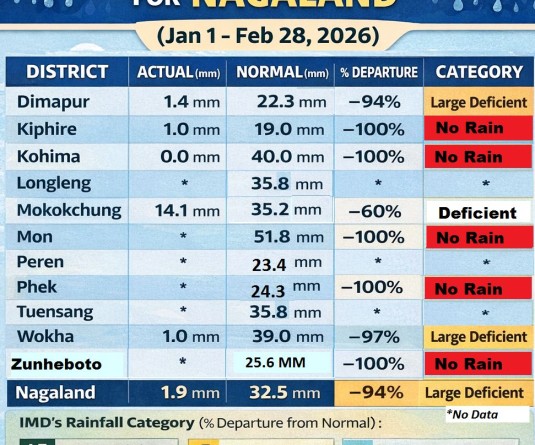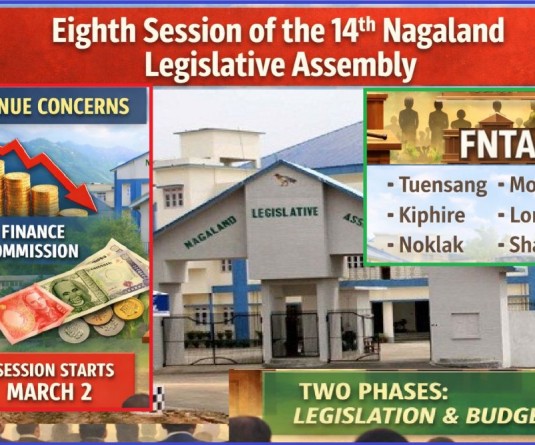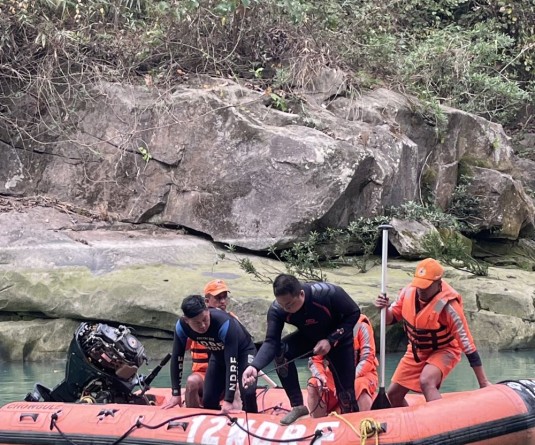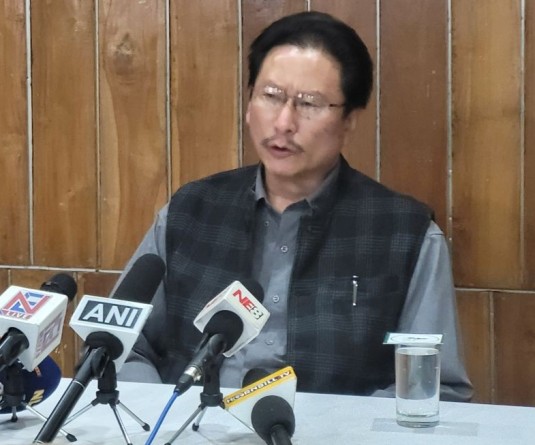
Dimapur, December 22 (MExN): Scholars from around the world converged on the campus of Japfü Christian College in Kohima on December 21 and 22 to present and debate new research conducted around the theme: ‘Looking beyond the State: Changing forms of inclusion and exclusion in India’.
The conference was organised and supported by Japan-based Contemporary India Area Studies (INDAS) with participating institutions Kyoto University, the University of Tokyo, Hiroshima University, and the National Museum of Ethnology, and Shillong-based ICSSR-NERC in coordination with the University of Delhi, the University of Edinburgh, and Japfü Christian College.
It is among the first of its kind to bring together social scientists from Britain, Japan, India – and specifically the Northeast and Nagaland – to discuss issues that lie at the root of many of the current socio-political problems.
The first paper presented by Edinburgh University lecturer Dr. Arkotong Longkumer was titled ‘Moral geographies: The problem of territoriality, sovereignty and indigeneity in Nagaland, India’. This was followed by Edinburgh University, PhD scholar M. T. Heneise with an ethnographic essay discussing the disjunctions of kinship, citizenship and entitlements among migrant labourers in Naga’s urban centres. Dr. Dulali Nag finished the session with a critical report on the practices of inclusion and exclusion at a border-market along the Manipur/Myanmar border.
Dr. Hia Sen of Kolkata-based Presidency University commented and critiqued the three papers, further spurring debate among the audience of students, post-graduates, and lecturers in the audience.
Chaired by Dr. RhioIsaka (U. of Tokyo), Dr. Suryakant Wagmore (Tata Institute of Social Science) launched the second session discussing caste violence and the democratisation of public spaces in Maharashtra, followed by Dr. Abhijit Dasgupta (U. of Delhi) who presented a paper on ‘The exclusion of Muslim Dalits in West Bengal’. The session was concluded by Dr. Kenta Funahashi (Kyoto U.) with a paper on syncretistic practices among Dalit converts to Buddhism in Uttar Pradesh, with comments and critique by Dr. Thosie Awaya of Tokyo University of Foreign Studies.
Chaired by Dr. Fr. Abraham Lotha (St. Joseph’s College, Jakhama), the evening session of the first day included a ‘Special Session on Northeast India’ in which prominent Naga and Assamese scholars presented research on socio-political issues in Northeast India and Nagaland.
Dr. L. Ngullie opened with a presentation on financial inclusion in Nagaland, followed by J. Sekhose who discussed Sumi traditions and migration patterns. Amiya Kumar Das (Tezpur U.) followed with a stimulating discussion on the social structure of governance, after which Dr. Kekhrieseno Christina and Dr. Viraho Hibo presented an essay on Angami society, egalitarianism and contemporary challenges. Dr. C. Ngullie concluded discussing historical and contemporary challenges surrounding education in Nagaland.
Dr. Alphonsus D’Souza (Prof. Emeritus, St. Joseph’s, Sr. Research Fellow, NESRC, Guwahati) wrapped up the session with comments and critiques.
The second day, with Dr. Minoru Mio chairing both sessions, scholars shifted to the theme: “Gender Dynamics, Minorities and the Globalising State” where Dr. Visakhonü Hibo presented a paper on perceptions among Naga women on the Naga struggle. This was followed by a stimulating paper on the new dynamics of subjective agency vis-à-vis traditionally conceptualised trajectories of development and democracy in India, presented by Prof. Akio Tanabe (Kyoto U.). The session concluded with a paper entitled: “The inclusion and exclusion of minorities in India: The interaction between state and society” by Dr. Kazuya Nakamizo (Kyoto U.).
The final session of the conference dealt with the issue of migration and the border, with an energetic presentation by Dr. Kedeilezo Kikhi on the challenges facing policy-makers given historical, demographic, and political challenges surrounding the migrant issue in the Northeast. Cautioning the audience to mindful of pointing fingers – particularly at Bangladeshi migrants – he implored scholars that more research was needed, particularly given the explosive nature of the issue and the complex social dynamics of employment and unemployment among Naga youth.
Concluding the conference, Dr. Ayako Iwatani (Hiroshima U.) presented her research on street vendors in Ahmedabad, wherein streets are employed both as spaces of social inclusion and exclusion. Papers presented here will be peer-reviewed and published in The South Asianist journal, published by the Centre for South Asian Studies, University of Edinburgh.






